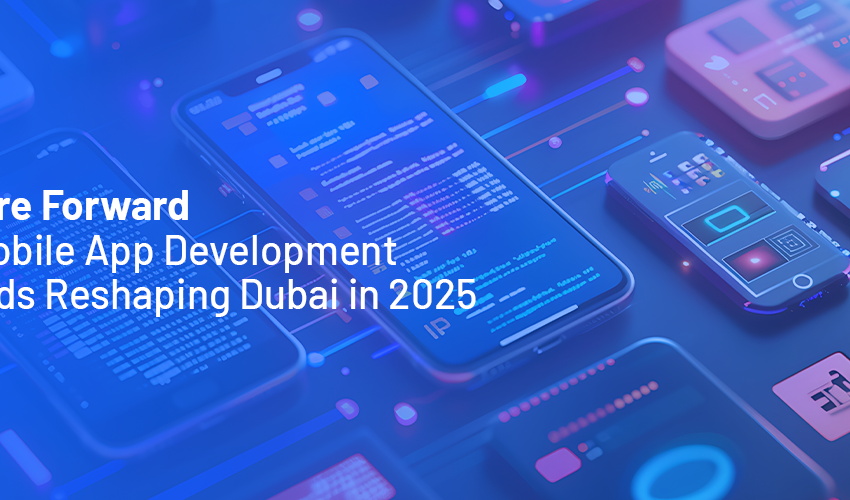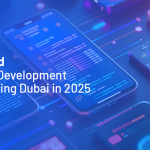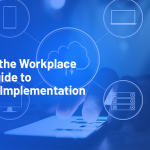Future Forward: 10 Mobile App Development Trends Reshaping Dubai in 2025
We’ve entered a new era of mobile experiences. In Dubai, a city pushing the boundaries of digital innovation, app development is not just about function anymore. It’s about creating intelligent, immersive, and interconnected ecosystems that reflect the fast-paced evolution of user expectations. As we look ahead to 2025, understanding what’s next in mobile app trends in Dubai could be the key to staying relevant.
1. AI-Driven Personalization Takes Center Stage
In 2025, users expect more than generic recommendations as they long for predictive experiences. AI algorithms are learning from user behavior at unprecedented speeds. Apps like Careem now use machine learning to predict trip destinations, optimize pricing, and reduce wait times.
What this means for you: If your app is not delivering personalized content or services, you risk losing engagement. Consider integrating contextual AI to anticipate user needs and elevate the in-app journey.
2. Super Apps Are the New Ecosystems
Originally a trend out of Asia, super apps have landed in Dubai with force. These multi-functional platforms allow users to shop, pay, chat, and access services all in one app. Noon and Smiles by Etisalat are already showing how multi-service ecosystems can retain users for longer periods.
Dubai’s fast-growing digital economy supports this shift. Users appreciate fewer downloads and more centralized control.
3. Voice Tech Is Becoming Default UI
Voice-enabled interactions are no longer a novelty because they quickly become the norm. From innovative city services to on-demand delivery, voice tech makes interactions more seamless. Emirates NBD’s EVA, a voice assistant inside the bank’s app, demonstrates how voice tech can simplify banking.
Your mobile strategy should consider voice UI integration to stay ahead of user expectations in accessibility and convenience.
4. Augmented Reality (AR) for Immersive Commerce
AR is now enhancing real-world utility rather than being used only for games. Dubai retailers like IKEA and Sephora use AR apps to let customers preview products in real-time. Expect more sectors to adopt AR for virtual fittings, interior visualization, and education.
AR adds an experiential layer to your app. It turns browsing into an immersive brand experience.
5. Blockchain for Secure Transactions
As fintech continues booming in the UAE, blockchain offers unmatched transparency and security. Local startups are leveraging decentralized ledgers for smart contracts and cross-border payments. BitOasis, for example, is integrating blockchain for faster, safer crypto transactions.
For any app handling sensitive data or transactions, blockchain ensures trust, and in today’s digital world, trust is currency.
6. 5G Enabling Richer App Features
With Dubai’s 5G rollout accelerating, developers can now create apps that stream higher-quality content with less latency. We’re talking real-time gaming, HD video calls, and IoT control within the same platform. Du and Etisalat’s investments in 5G infrastructure are already transforming app expectations.
Plan now for future-ready functionality that maximizes 5 G’s potential.
7. Progressive Web Apps (PWAs) Still Growing
PWAs are one of the most hyped mobile app trends in Dubai that offer the speed and accessibility of native apps without requiring a download from app stores. Government services in Dubai have increasingly adopted PWAs to cut development time while reaching broad audiences. Their fast load times and low data use make them a fit for all users.
PWAs offer a lighter, more efficient user experience. Also, it is a win-win for developers and consumers alike.
8. Low-Code/No-Code Development
Dubai’s startup scene is vibrant, and time-to-market is everything. Platforms like FlutterFlow and Bubble are enabling entrepreneurs to launch MVPs in record time. This democratization of app development fuels faster innovation without waiting for full-scale engineering teams.
If speed is your edge, a low-code solution might be the smartest path forward.
9. Green App Development
Sustainability is taking digital form. Eco-conscious coding practices, like energy-efficient background processes and minimalist UX, are now influencing mobile app design. Dubai’s Smart City initiative includes guidelines for green digital products.
Building eco-friendly apps is a corporate responsibility and a growing user preference.
10. Hyperlocal Functionality
Dubai’s multicultural population and varied geographies demand personalized, location-specific solutions. Apps like Talabat use GPS and user data to recommend hyperlocal dining options, promotions, and delivery windows.
Hyperlocalization means relevance. The more personalized your app experience is by geography, the higher your engagement and retention.
Why Untitled10 Is a Leader in Future-Ready App Development
At Untitled10, we’re shaping the future as we build mobile app trends in Dubai that meet rising speed, security, and UX standards. Our team understands what today’s users expect and what tomorrow’s apps need. From integrating AI to developing scalable super apps, we turn bold ideas into digital realities.
Partner with us to future-proof your mobile presence.
FAQs
- Are mobile app trends in Dubai different from global markets?
Yes. While some trends are universal, Dubai’s smart city initiatives and multilingual audience drive a unique mix of innovation and localization. - Can small businesses leverage these trends without huge budgets?
Absolutely. The use of low-code/no-code combined with progressive web apps and the infusion of AI in workflow automation can help small businesses benefit from these trends without needing huge budgets. - What’s the most impactful trend for 2025?
AI personalization stands out for its ability to deeply engage users, increasing both satisfaction and conversions over time. Businesses can understand specific user requirements and modify their services for maximum impact and revenue.





